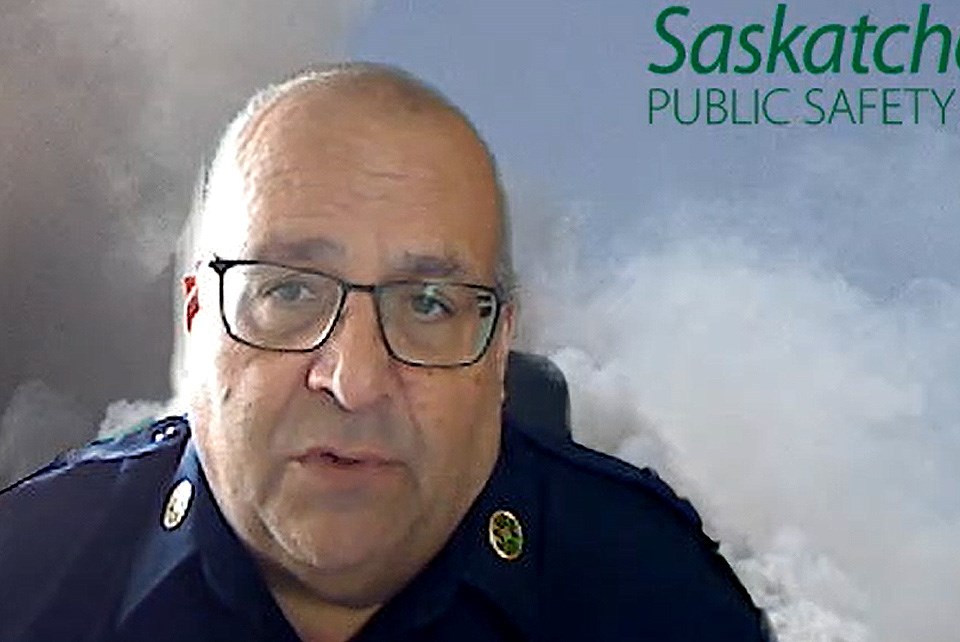NORTHERN SASKATCHEWAN — As wildfires continue to tear through northern Saskatchewan, forcing between 10,000 and 15,000 people from their homes and destroying hundreds of properties, the Opposition NDP is calling on Premier Scott Moe to urgently request federal military assistance.
NDP Leader Carla Beck issued a public appeal to Moe this week, urging the provincial government to accept federal help in the form of military support, policing resources, and communications aid. In her letter to the Premier, Beck emphasized the urgency of the situation, warning that further delays could come at a steep human cost.
“People are losing everything, and the weather isn’t letting up,” said Beck. “The federal government has made it clear that help is available. There’s no reason to leave that help on the table.”
Her call follows confirmation from the federal government that it is prepared to step in if asked.
While neighbouring Manitoba has already called in military assistance to manage evacuations, Saskatchewan has so far opted not to follow suit. The province last requested military aid for wildfires in 2015 under then-premier Brad Wall, when 13,000 residents were forced to flee.
“I believe it is again time for a national approach,” said Beck. “We should be using every resource available to protect people and protect the North.”
Steve Roberts, vice-president of operations with the Saskatchewan Public Safety Agency (SPSA), said that qualified wildfire crews from other provinces and the United States, including Quebec, British Columbia, Yukon, and the states of Alaska, Oregon, and Arizona, have already been deployed in Saskatchewan.
“That’s why we’re not bringing them in to date,” he said. If the fire event takes on 2015 proportions, he indicated, that would be the time to consider bringing in ground-based crews from the military.
The Saskatchewan Public Safety Agency (SPSA) issued a statement Thursday afternoon saying they recognize that the Canadian Armed Forces has specific capabilities to support wildfire response, such as large-scale aerial support for evacuations. The SPSA is in daily contact with Public Safety Canada in determining what resources may be needed from the federal government and will request resources from the federal government, if needed, to support its efforts, the statement said.
Currently, Saskatchewan’s greatest areas of need are for water bombers and firefighting resources, which the military is not able to provide, said the statement.
The SPSA said they are in daily contact with the RCMP and they are regularly evaluating the need for extra resources.
Currently, the Saskatchewan Marshals Service has been engaged to assist the RCMP. Nine Saskatchewan Marshals and two inspectors from the Saskatchewan Marshals Service are patrolling evacuated communities, bolstering the capacity to protect evacuee assets from looting.
Daily fire update
As of Thursday, Saskatchewan is battling 24 active fires, with 244 wildfires reported so far in 2025, a sharp increase from the five-year average of 138.
Roberts confirmed that more than 30 communities have been evacuated, either fully or partially. Firefighters and emergency personnel continue to contend with dangerous conditions, compounded by dry weather and shifting winds.
The SPSA has confirmed the loss of at least 267 structures, referred to as “values,” with the number expected to rise to closer to 400 as further assessments are completed.
Power and communications in some regions have been impacted, with SaskPower and SaskTel working to restore services when conditions allow.
While the province has not yet made a formal request for military support, Roberts acknowledged ongoing discussions with federal partners about potential aid, particularly on the humanitarian front.
“We are looking at… assistance on the evacuation side,” he said, “if there might be some support either to the Canadian Red Cross or ourselves.”
In the meantime, residents seeking information on wildfire activity and evacuations are advised to call the SPSA’s toll-free number at 1-855-559-5502 or visit the agency’s public website. For travel updates, officials recommend consulting the provincial highway hotline and avoiding travel into fire-affected regions unless absolutely necessary.
As fire crews continue their efforts, Roberts said that even modest changes in wind speed can drastically alter fire behaviour.
“So instead of seeing the fire move three to eight kilometres, yesterday we were seeing a fire move maybe a kilometre, kilometre and a half,” he said. “You have more time to put in breaks and do suppression efforts when your fires are a little more moderate. That being said, we have a lot of fires in a lot of the area.”
The SPSA said they remain ready to respond and adapt effectively to this wildfire emergency. Once the wildfire situation in the province becomes more stable, the SPSA may look at using other resources available.




